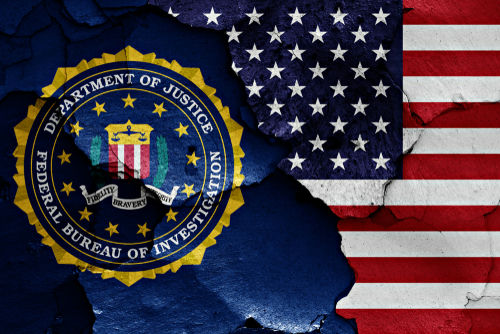Americans are finally getting answers—and a fresh look at just how much safer classified documents may have been at Mar-a-Lago than in the hands of the very agencies tasked with guarding them.
Judge Forces FBI Transparency on Mar-a-Lago Raid
A federal judge’s order in February 2025 has forced the FBI to release previously hidden records from its widely condemned raid on Mar-a-Lago, finally giving Americans a closer look at the agency’s conduct during the Trump classified documents investigation. The court’s decision comes after years of stonewalling, secrecy, and accusations of political targeting directed at federal law enforcement agencies. For many, this is validation that the system has been weaponized against political opponents—a pattern conservatives have warned about for years.
Classified Documents Were Safer At Mar-A-Lago Than With The FBIhttps://t.co/A90kAYQyk5
— The Federalist (@FDRLST) July 31, 2025
The August 2022 FBI search of Trump’s Mar-a-Lago estate, which resulted in the seizure of over 13,000 government documents including more than 300 classified items, was a turning point in American political history. Not only was this the first time a former president faced a criminal probe over classified material, it cemented the notion that federal agencies were willing to cross any line—legal, ethical, or constitutional—in pursuit of their preferred political outcome. Even now, the FBI and DOJ continue to claim national security justifications for their actions, but the forced transparency is exposing gaps, inconsistencies, and outright failures in their handling of the case.
The Unprecedented Prosecution of a Former President
The saga began in early 2022, after the National Archives discovered missing records and launched a protracted negotiation with Trump’s legal team. Despite some documents being returned, the DOJ claimed that highly sensitive materials remained at Mar-a-Lago, prompting the infamous raid. What followed was a legal circus: special counsel appointments, media leaks, and a relentless push to paint Trump as a criminal, all while ignoring the fact that similar disputes over presidential records never led to criminal charges before.
The Clinton email scandal, for example, saw zero prosecutions despite clear evidence of mishandled classified materials. But when it comes to Trump, the rules changed overnight. Prosecutors, led by Special Counsel Jack Smith, filed charges for mishandling documents and obstruction—while conveniently glossing over the role of the Presidential Records Act, executive privilege, and the long history of bureaucratic bungling by the very agencies now claiming to be guardians of national security. The entire affair has amplified suspicions that the real “crime” was daring to challenge the entrenched D.C. bureaucracy.
Legal Fallout, Political Divide, and Public Distrust
Since the raid, the legal drama has played out in fits and starts. Some charges have been dropped or rendered moot as Trump’s political fortunes have rebounded and the public’s appetite for partisan witch hunts has waned. The transparency forced by the recent court order has only increased scrutiny on the FBI and DOJ, with Americans demanding to know why agencies that let millions of illegal immigrants cross the border with no accountability are so obsessed with boxes of paper locked in a former president’s private residence.
The saga has deepened political polarization, eroded trust in federal law enforcement, and fueled debates about whether these agencies can ever be truly nonpartisan. Legal scholars warn that the case sets dangerous precedents for criminalizing political disputes. Meanwhile, national security experts argue that the real threat comes from lax procedures at the highest levels of government—not from a locked storage room at Mar-a-Lago. The public, for its part, is left to wonder who is really safeguarding America’s secrets: a former president under 24/7 Secret Service protection, or the alphabet agencies with decades of leaks, scandals, and politically motivated prosecutions to their name.
What’s Next—and What’s at Stake for America
The political fallout will continue as long as the case drags on in courtrooms and in the court of public opinion. Trump’s supporters see the case as proof positive that the “deep state” will stop at nothing to silence dissent, while critics insist on accountability—though they’re far quieter when the accused isn’t a Republican. The forced release of FBI records may finally offer the transparency Americans deserve, but it also lays bare the ugly truth: our government’s priorities are dangerously out of whack.
Looking ahead, the Mar-a-Lago documents case will shape how presidential records are handled, how executive privilege is interpreted, and whether future political opponents will ever get a fair shake from the agencies meant to serve all Americans. One thing is certain: millions of Americans are done accepting excuses from bureaucrats who hide behind “national security” while trampling on the Constitution and common sense. The demand for real accountability has never been louder.
Sources:
FBI investigation of Donald Trump’s handling of presidential records
Federal prosecution of Donald Trump (classified documents case)
Judge orders FBI to release information in Trump documents case
FactCheck: Trump allies misrepresent FBI order on document search at Mar-a-Lago
Click this link for the original source of this article.
Author: Editorial Team
This content is courtesy of, and owned and copyrighted by, https://www.rightwinginsider.com and its author. This content is made available by use of the public RSS feed offered by the host site and is used for educational purposes only. If you are the author or represent the host site and would like this content removed now and in the future, please contact USSANews.com using the email address in the Contact page found in the website menu.








